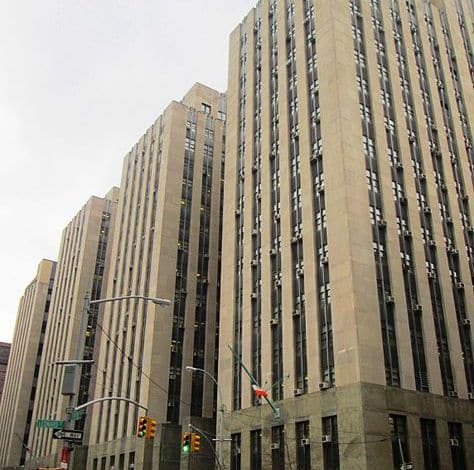The Manhattan grand jury investigating former President Trump’s role in a hush money payment to adult film actress known as Stormy Daniels resumed work on Monday.
According to reports, the grand jury is expected to hear from at least one witness Monday, those information on that person’s identity was not immediately available.
This would be the first witness to testify before the Manhattan grand jury since last Monday, when Robert Costello, an attorney with close ties to Trump aides, was invited by prosecutors in District Attorney Alvin Bragg’s office to present information he claimed would undercut the credibility of former Trump attorney Michael Cohen, who has stated he made $130,000 in hush money payments to Daniels on Trump’s behalf.
The payment was a campaign contribution violation during the 2016 election cycle, since it was made in service of the Trump campaign, and $130,000 exceeded the federal limit.
Costello had provided legal services to Cohen several years ago after Cohen was targeted by federal investigators. Following his testimony last Monday, Costello told reporters that Cohen—who has served prison time after pleading guilty to federal crimes—is not trustworthy.
Cohen then went on MSNBC a short while later and responded, saying that it’s Costello who “lacks any sense of veracity.”
The grand jury resumes its work following a claim by Trump on his site Truth Social that there would be “potential death and destruction” if he is charged in the hush money case.
Soon after it was reported that D.A. Bragg had received a letter containing white powder along with a note typewritten in all caps, “ALVIN: I AM GOING TO KILL YOU!!!!!!!!!!!!!”
The letter, containing an Orlando, Florida postmark from Tuesday, was found in the District Attorney’s mail room in a lower Manhattan building after being received at 11:40am Eastern Time the previous Friday. The white powder in the envelope was determined to be non-hazardous, according to the NYPD.
It’s not clear what charges Manhattan prosecutors might be exploring. In order for falsifying business records to be a felony, not a misdemeanor, Bragg’s office must show that Trump’s “intent to defraud” included an intent to commit or conceal a second crime.
Cohen has reportedly testified that he paid the $130,000 in hush money out of his own funds, then was reimbursed by Trump in a way that was misclassified as a legal expense.
That crime could be a violation of election law, under the theory that the payout served as a donation to Trump’s 2016 campaign, because it silenced Daniels and shut down a potential sex scandal in the final stretch of the election season.


